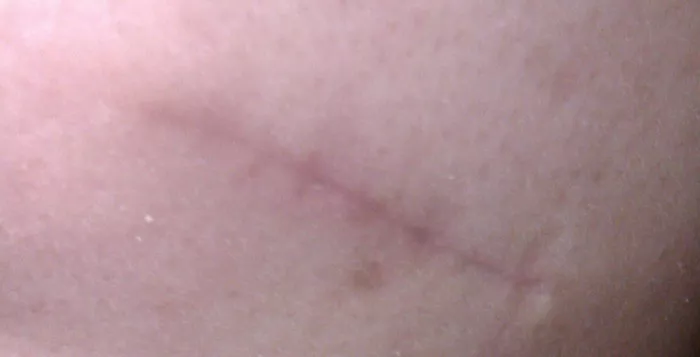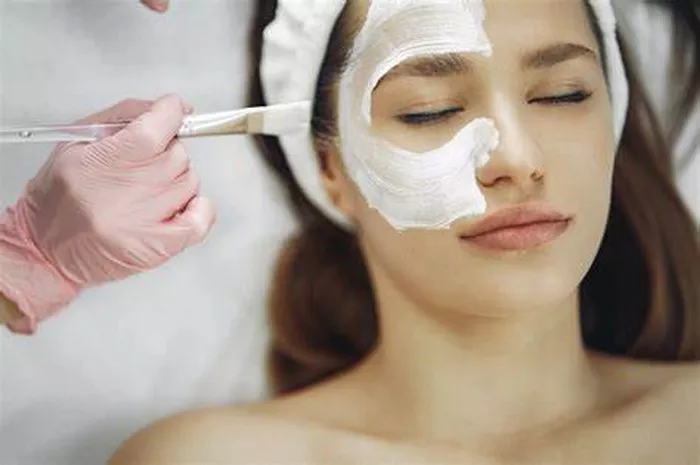Eye swelling in cats can be an alarming sight for any pet owner, especially when it’s caused by allergies. When a cat experiences eye swelling due to an allergic reaction, it can result in discomfort, pain, and in some cases, even affect their vision. Allergies in cats are quite common and can trigger a variety of symptoms, including swelling around the eyes, watery discharge, and redness. While some cases may resolve on their own, others may require intervention to prevent further complications.
Understanding the underlying causes of eye swelling, recognizing the symptoms early, and seeking prompt treatment are essential steps in managing this condition. In this article, we will explore the causes of eye swelling in cats due to allergies, how to treat the condition, and how to prevent it from recurring. By providing a comprehensive guide, we hope to empower cat owners with the knowledge they need to care for their feline friends and ensure their well-being.
What Causes Eye Swelling in Cats Due to Allergies?
Eye swelling caused by allergies in cats typically occurs when their immune system reacts to certain allergens in the environment. Allergens can trigger inflammation, causing the blood vessels in and around the eyes to become engorged and swollen. The swelling is often accompanied by other symptoms, such as redness, discharge, and excessive tearing. Let’s break down the common causes of eye swelling in cats.
Environmental Allergens
The most common cause of eye swelling due to allergies in cats is exposure to environmental allergens. These allergens are substances in the environment that can trigger allergic reactions. Common environmental allergens include:
Pollen: Seasonal pollen from trees, grasses, and flowers is a frequent trigger for allergic reactions in cats, leading to eye swelling and other symptoms such as sneezing and nasal congestion.
Dust mites: These tiny creatures thrive in household dust and can cause allergic reactions when inhaled. Dust mites are particularly problematic in homes with carpeting, bedding, or upholstered furniture.
Mold: Mold spores are another common allergen that can lead to allergic reactions in cats. Mold can grow in damp areas such as bathrooms or basements, and its spores can easily become airborne.
Chemicals and Fragrances: Household cleaning products, air fresheners, and scented candles can contain chemicals that may irritate your cat’s eyes and trigger allergic responses.
Flea Allergies
Flea allergies, also known as flea allergy dermatitis (FAD), can cause a cat to experience allergic reactions that manifest in various parts of the body, including the eyes. When a flea bites a cat, it injects saliva that contains proteins that many cats’ immune systems recognize as foreign invaders. This immune response can lead to eye swelling, along with itching, hair loss, and skin inflammation.
Food Allergies
Although food allergies are less common as a direct cause of eye swelling, they can still play a role. Some cats may develop allergic reactions to certain ingredients in their food, such as dairy, fish, or chicken. These food allergies can cause systemic symptoms, including eye swelling, hives, and gastrointestinal issues. If your cat has recurring eye swelling, it may be worth considering food allergies as a potential underlying cause.
Allergic Conjunctivitis
One specific type of allergic reaction that can lead to eye swelling is allergic conjunctivitis. This occurs when the conjunctiva, the thin membrane that lines the eyelids and covers the white part of the eye, becomes inflamed due to an allergic reaction. Cats with allergic conjunctivitis may experience symptoms such as red, swollen eyes, excessive tearing, and clear or yellow discharge. Allergic conjunctivitis is often triggered by environmental allergens such as pollen or dust mites.
Recognizing the Symptoms of Eye Swelling in Cats
Before you can treat eye swelling caused by allergies in cats, it’s important to recognize the symptoms and understand how they manifest. Allergies can cause a variety of symptoms that may affect your cat’s eyes, behavior, and overall well-being.
Swollen and Puffy Eyes
The most obvious sign of eye swelling in cats is the appearance of swollen or puffy eyes. The swelling can affect one or both eyes and may be accompanied by redness or irritation. In some cases, the eyelids may appear droopy, and the eyes themselves may look more squinted than usual.
Watery or Discolored Discharge
Cats with eye swelling due to allergies often produce excess eye discharge. This discharge may be clear, watery, or sometimes thicker and yellowish in color. The discharge may cause the fur around your cat’s eyes to become matted, and your cat may frequently try to rub their eyes with their paws or face.
Excessive Tearing
Another symptom of eye swelling caused by allergies is excessive tearing, also known as epiphora. Your cat’s eyes may water excessively, and tears may run down their face. This is a common response to irritation in the eyes, including the inflammation caused by an allergic reaction.
Redness and Irritation
Allergic reactions often cause the blood vessels in the eyes to dilate, leading to redness or bloodshot eyes. The inner eyelids and the whites of the eyes may appear pink or red. Your cat may also show signs of irritation, such as squinting or pawing at their eyes.
Squinting or Difficulty Keeping Eyes Open
Due to the swelling and discomfort, your cat may begin squinting or avoiding opening their eyes completely. Squinting is a common sign of pain or discomfort in cats, and it often indicates that the eyes are irritated or inflamed.
Behavior Changes
In addition to physical symptoms, cats with eye swelling due to allergies may also exhibit behavior changes. They may become more lethargic or withdrawn, avoiding playtime and resting more than usual. Some cats may also become more irritable or anxious as a result of the discomfort caused by their swollen eyes.
How to Treat Eye Swelling Caused by Allergies in Cats
Once you’ve identified the symptoms of eye swelling due to allergies in your cat, it’s time to explore treatment options. Treatment for eye swelling will depend on the severity of the reaction, the underlying cause, and your cat’s overall health. Below are some common approaches to managing and treating eye swelling caused by allergies in cats.
Consult Your Veterinarian
The first step in treating eye swelling in cats is to consult with your veterinarian. A veterinarian can diagnose the underlying cause of the eye swelling and recommend an appropriate treatment plan. In some cases, the swelling may be due to a bacterial or viral infection rather than allergies, so it’s important to have a proper diagnosis.
Medications for Eye Swelling
Once the underlying cause is determined, your veterinarian may prescribe medications to help reduce the swelling and alleviate your cat’s symptoms. These medications may include:
Antihistamines: Antihistamines can help control the allergic reaction by blocking the effects of histamine, a chemical released during an allergic response. Antihistamines are often used to reduce swelling, redness, and itching.
Steroids: Corticosteroids, either topical or oral, can help reduce inflammation and swelling around the eyes. These are usually prescribed for more severe allergic reactions.
Anti-inflammatory Medications: Nonsteroidal anti-inflammatory drugs (NSAIDs) can help reduce pain and inflammation associated with eye swelling.
Eye Drops or Ointments: Your veterinarian may recommend specific eye drops or ointments to soothe the eyes and reduce swelling. These products can help keep the eyes moist and prevent further irritation.
Antibiotics: If there is any sign of a secondary bacterial infection, your veterinarian may prescribe antibiotics to treat the infection and prevent further complications.
Environmental Control
In addition to medication, managing your cat’s environment is essential for reducing exposure to allergens. Here are some strategies that can help prevent future allergic reactions:
Keep the Environment Clean: Regularly clean your home to reduce dust, mold, and pet dander. Use a vacuum cleaner with a HEPA filter to reduce allergens in carpets and furniture.
Use Air Purifiers: HEPA air purifiers can help reduce airborne allergens such as pollen and dust mites. Place them in rooms where your cat spends a lot of time.
Limit Exposure to Pollen: If your cat is allergic to pollen, try to keep them indoors during high pollen seasons. Avoid walks in grassy or flower-filled areas during peak pollen times.
Flea Control: If your cat has flea allergies, ensure that they are on a proper flea control program. Flea prevention products, such as topical treatments or oral medications, can help keep fleas at bay.
Supportive Care
Supportive care can also play a role in helping your cat recover from eye swelling caused by allergies. Here are some tips for providing comfort and care during the recovery process:
Warm Compresses: Gently apply a warm, damp cloth to your cat’s swollen eyes to help reduce swelling and soothe discomfort. Be sure to do this gently and avoid applying too much pressure to the eyes.
Keep the Area Clean: Wipe away any discharge from your cat’s eyes using a clean, damp cloth. This will help prevent further irritation and keep the area clean.
Monitor Symptoms: Keep an eye on your cat’s symptoms, and contact your veterinarian if the swelling persists or worsens.
Preventing Eye Swelling from Allergies in Cats
Prevention is always the best course of action when it comes to allergies. While it may not be possible to eliminate all allergens from your cat’s environment, there are several strategies you can use to minimize their exposure:
Allergen-Free Environment: Try to create an environment that is as free from allergens as possible. Use air purifiers, keep your home clean, and limit your cat’s access to areas where allergens may be present.
Dietary Adjustments: If your cat has food allergies, consult your veterinarian about a hypoallergenic diet. This can help prevent allergic reactions that could lead to eye swelling
and other symptoms.
Regular Vet Check-Ups: Regular visits to the veterinarian can help detect and manage allergies before they become more severe. Your vet may recommend allergy testing to identify the specific triggers for your cat’s symptoms.
Conclusion
Eye swelling caused by allergies in cats is a common condition that can lead to discomfort and potential complications if left untreated. Understanding the causes of eye swelling, recognizing the symptoms early, and seeking appropriate treatment are key to managing the condition. With proper care, medication, and environmental management, most cats can recover from eye swelling caused by allergies and lead happy, healthy lives.
If your cat is suffering from eye swelling, don’t hesitate to consult your veterinarian. Early intervention can make all the difference in ensuring your cat’s health and comfort. By taking the right steps to prevent and treat allergies, you can help your feline friend feel better and enjoy their everyday activities without the discomfort of swollen eyes.
Related Topics

































